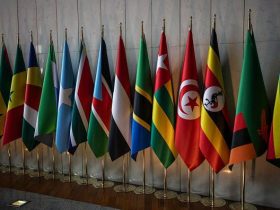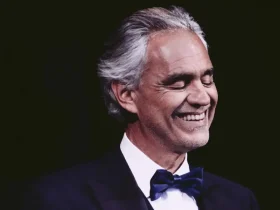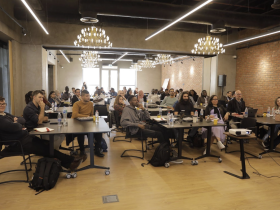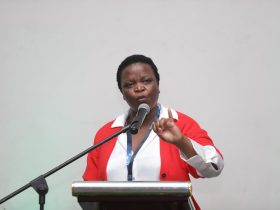In January 2023, I joined one of South Africa’s leading think tanks, the Free Market Foundation (FMF), as its new Chief Executive.
It is an honour to serve an organisation that has promoted a market economy, the rule of law, and individual rights for nearly half a century.
My appointment has led me to reflect on what think tanks are for, and their rapidly changing role in the policy – and political – landscape in South Africa.
Why do think tanks exist?
At a basic level, think tanks promote specific policy-related causes and objectives. Through their work, they seek to influence the thinking of governments, businesses, and other social actors, such as the media.
Traditionally, think tanks have been staffed by researchers, lawyers, economists, academics, or public relations experts who devote their time and energy to publishing research papers, authoring books or journal articles, and hosting conferences.
That is what think tanks do, but what exactly is their purpose, you might ask?
They serve a vital role in entrenching constitutional democracy by acting as a coordination mechanism for civil society to be involved in the formulation and adoption of policy.
For too long, think tanks in South Africa have seen themselves as an extension of academia, content in their position as detached commentators on social trends or mere ‘contributors’ to the policymaking process. This is changing.
While scholarly research is important, think tanks should ask themselves why they perform this research in the first place and what goal they are trying to achieve through their work. The FMF has self-consciously identified its raison d’etre as contributing to the upholding of the constitutional state, by advocating for the freedom of the individual to freely pursue their economic aspirations without external coercion.
The constitutional state
Although elections are certainly necessary in a free society, democracy is not only about voting for legislators and presidents. Many authoritarian states – like today’s Zimbabwe or Russia – hold regular elections (although these are seldom free or fair).
For a democratic system to live up to its name, it must have institutional mechanisms in place that limit power and prevent its potential abuse.
A separation of powers prevents a concentration of political power and stops politics from descending into simple majoritarianism.
Federalism is also an important mechanism for spreading power across different geographies and authorities, such as provinces or municipalities.
However, even when elections are free and fair, and political institutions are legally separated, a government could still be tempted to violate the rights of citizens if it is not sufficiently held in check.
Many dictatorships have a written constitution, but if the rights of citizens are not enforceable against the State (or those who run the State), then the Constitution is not worth the paper it is written on.
In such instances, citizens are subject to rule by man, not the rule of law. The courts, vital as they are, can only prevent the abuse of power by the executive or the legislature if the rule of law is strong enough.
The rule of law requires that every citizen be treated equally before the law. This enables ordinary citizens to hold elites to account and constrains the ability of politicians to exercise their power arbitrarily.
As FMF director, Martin van Staden, explains in his 2019 book: ‘The Constitution and the Rule of Law: An Introduction’, the rule of law demands that laws must be rational, transparent, and clearly intelligible by the population at large.
This is why the FMF’s Rule of Law Project was set up to guard against any infringements of the rule of law and to protect the independence of the judiciary.
In this case, the FMF has moved beyond the realm of research and advocacy and adopted a new role as a ‘constitutional watchman.’ Many other civil society organisations, such as the Institute of Race Relations, AfriForum, Outa, Sakeliga, and the Helen Suzman Foundation are doing the same.
Think tanks as watchmen
The Roman poet, Juvenal, once wrote: Quis custodiet ipsos custodes?
In English: “Who will watch the watchmen?”
A constitutional state is one where power is necessarily decentralised. However, power should not only be decentralised within and throughout the different spheres of government, but also decentralised outside of the government. Legal scholar, Prof Koos Malan, who serves on the FMF’s Rule of Law Board, has written extensively on this topic.
In a constitutional state, social formations like professional associations, trade unions, religious organisations, and community groups, all carry with them a measure of political power in a broad sense.
These formations serve as coordination mechanisms for citizens, allowing them to act as a counterweight to government power.
In totalitarian systems, such as Nazi Germany, the Soviet Union, or Mao’s China, churches, civic groups, and landowners were all treated with contempt. They were seen as a threat to the ultimate authority of the State and were ruthlessly suppressed or eliminated.
A totalitarian state is one where the only ‘association’ or ‘club’ that people may belong to, effectively, is the State itself. A machtstaat, unlike a constitutional state, concentrates all power in the State itself.
That is why Nazi Germany had Nazi trade unions, Nazi professional associations, and Nazi sports teams. There was even a government-sanctioned church. Civil society outside of the ambit of the State was simply not allowed.
By contrast, the South African Constitution recognises the crucial importance of public involvement in creating the laws, regulations, and policies that govern them.
Think tanks, as a social formation that coordinates civil power at an intellectual level, therefore play an important role in the constitutional setup. They are a manifestation of the reality that policy is not the exclusive province of government.
Think tanks are where policy expertise is developed and capacity is created, for civil involvement in the policy process. They are effectively a delegation of citizens’ right to participate in policy formation.
Civil society formations in the policy space are especially important for breaking the echo-chamber that can develop, especially in a political system such as South Africa’s, where one party dominates the electoral landscape.
The illusion of consensus
Political and policy discourse in South Africa tends to be characterised by the search for ‘consensus’ or ‘unity’ among various ‘stakeholders’ – typically government, business, and organised labour.
Many civil society organisations and business associations fall into this consensus-seeking trap, attempting to steer policy debates towards a single unified position.
Organised business proudly boasts of its ‘access’ to government. Business leaders attend all the investment summits and lekgotlas, but where has their consensus-seeking approach gotten us?
Mostly, this approach has provided cover for hostile government policies and compounded the many problems facing South Africa.
For example, the Expropriation Bill – recently passed through the National Assembly – dilutes the rights of property owners. At the time of writing, the Bill sits before the National Council of Provinces, where it is likely to be rubber-stamped. So much for checks and balances!
By contrast, the FMF recognises that property rights are an indispensable element of human freedom, which is why we have facilitated the transfer of nearly ten thousand title deeds to the poor through our Khaya Lam project.
Another example is the National Health Insurance (NHI) Bill, which is also being rushed through Parliament. The NHI scheme will give the Minister of Health wide discretionary powers and place all private and public healthcare funds under the authority of the state. The FMF’s Health Policy Unit is valiantly opposing this predictable disaster and is standing up for citizens’ healthcare freedom.
These are but two examples of where consensus-seeking has failed to prevent bad policy and where a more robust, confrontational approach is needed. There are numerous other instances where social compacts have resulted in failure. The energy and jobs crises spring to mind.
The inconvenient truth is that there is no policy consensus.
In a plural society such as ours,there will inevitably be divergent views and competing interests, and not all of these interests can be accommodated. There will necessarily be trade-offs between different interest groups. Consensus is not only impossible, but also undesirable.
Not all businesses fall into the social compacting trap, however.
Neal Froneman – the CEO of Sibanye Stillwater, a mining company – has called for an end to the consensus-seeking approach in favour of a more ‘transactional’ approach.
Froneman is urging big business to recognise its bargaining power and to use this power to extract policy concessions from government, rather than simply ‘going along to get along.’
I would argue that a similar approach is required from think tanks.
Freedom bias
As a think tank, the FMF is unashamedly biased towards freedom. We want to pull the policy debate in the direction of more freedom. We are not interested in achieving consensus with other groups that are actively opposed to economic freedom.
There is no middle ground to be sought. You cannot be half pregnant. You are either free or you are not.
Of course, this doesn’t mean that we won’t talk to people who disagree with our view of policy or whose ideological assumptions may differ from ours. But we will be clear about what we stand for and will defend these principles firmly and with conviction.
The FMF is not in the business of making friends. We are in the business of defending and advancing freedom. For freedom is worth fighting for.




























Leave a Reply